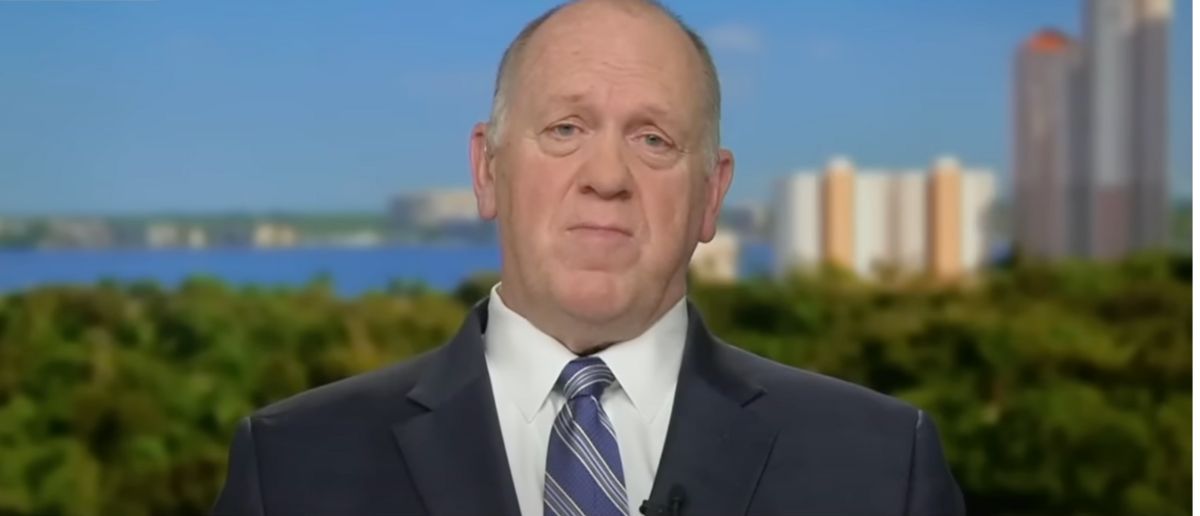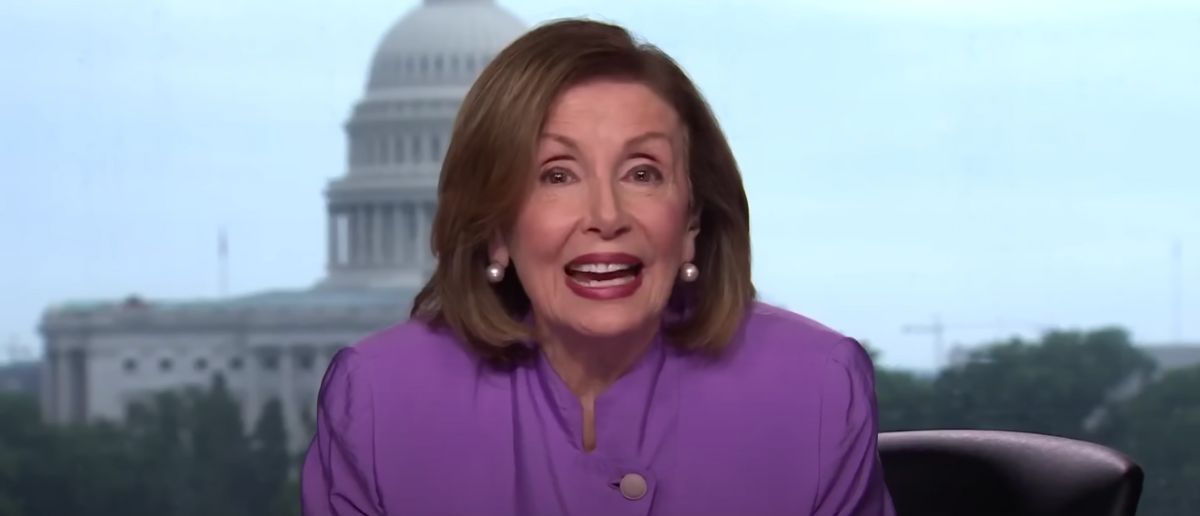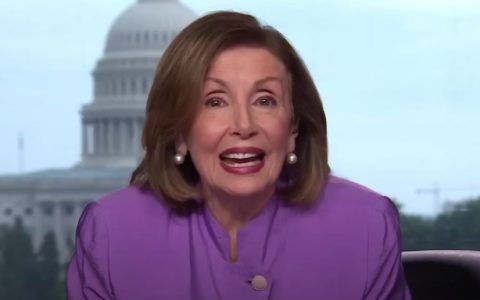
The Trump administration is tired of Congress dragging their feet. They’re taking action.
And now Donald Trump’s border czar has sent Congress a five word warning shot.
Trump’s Border Security Push Faces Congressional Stumbling Block
President Donald Trump’s administration is sounding the alarm, pressing Congress to act swiftly on a critical budget bill that would fuel his ambitious border security and deportation plans. With the clock ticking, key figures like White House border czar Tom Homan and the Department of Homeland Security (DHS) are warning that delays in passing what Trump calls his “one big, beautiful bill” could jeopardize efforts to secure the nation’s borders and remove illegal migrants. The urgency is palpable, and the administration is counting on Republican lawmakers to deliver.
The bill in question is no small matter. It’s a budget blueprint that would unlock over $100 billion in new funding for federal immigration authorities. This cash infusion would bankroll a range of priorities: completing the border wall, expanding detention facilities to hold illegal migrants, and hiring more Immigration and Customs Enforcement (ICE) officers. Senate Budget Committee chairman Lindsey Graham has been vocal about the plan’s potential, emphasizing its role in turning Trump’s vision into reality.
But there’s a snag. House conservatives are threatening to derail the budget resolution, which serves as the foundation for advancing Trump’s legislative agenda. Their reluctance stems from concerns over spending cuts—or the lack thereof—in the Senate-amended version of the blueprint. This internal GOP squabble risks stalling progress at a time when the administration insists every moment counts.
Tom Homan has been relentless in his push for action. Since early February, he’s been meeting with lawmakers, including a February 11 sit-down with Senate Republicans alongside Office of Management and Budget Director Russ Vought. Their message was clear: fund the president’s deportation and border security initiatives, and do it fast. Nearly two months later, Homan’s frustration is evident as Congress has yet to deliver the necessary resources.
Democrats in Arizona staged a WALK OUT to protest Trump’s border policies & deportations while Tom Homan was speaking about border related operations.
Absolutely disgusting. Democrats want criminals who harm Americans to roam around our country. pic.twitter.com/tmY181H591
— Libs of TikTok (@libsoftiktok) April 9, 2025
“We got to hope Congress gets that done, because there is a limited amount of funds,” Homan told Semafor on Monday. “And to do more, we got to buy more detention beds. We need more flights. We need more officers. We need more overtime. Bottom line is: The more money we get, the more successful we will be.” His impatience is understandable—every day without funding is a day the administration’s plans are hamstrung.
Homan didn’t mince words about the pace of progress. “Is it taking too long? Yes, it’s taking too long,” he added. “I wish they would have passed it by now.” His candid assessment underscores the administration’s belief that Congress is dragging its feet at a critical juncture.
The DHS has echoed Homan’s concerns, circulating a memo to Congressional offices this week that lays out the stakes in stark terms. Without the requested funding, the memo warns, Trump’s immigration enforcement efforts—border wall construction, detention capacity, and ICE staffing—will suffer. “Failure to Pass Reconciliation at the Requested Levels will Undo all the Trump Administration’s Massive Successes,” the memo states, a dire prediction that aligns with the president’s own rhetoric.
On the House side, Speaker Mike Johnson remains optimistic, expressing confidence that the budget resolution will pass as early as Wednesday evening. “The president’s been willing to help … I think we get this job done,” Johnson told reporters, signaling his belief that Senate Republicans are serious about tackling the deficit in the broader budget bill. His assurances reflect a determination to keep Trump’s agenda on track.
Yet not all House Republicans are on board. Figures like Rep. Chip Roy of Texas are digging in, arguing that the Senate’s budget plan fails to curb deficits effectively. “I cannot support the current Senate Budget plan,” Roy wrote on X Wednesday. “It ‘instructs’ the Senate to INCREASE deficits by failing to limit spending (only $4BB) while simultaneously reducing tax revenues (even adjusting for growth).” His stance has galvanized other conservatives, creating a potential roadblock.
House Freedom Caucus chair Andy Harris of Maryland is equally resolute. “$4 billion in spending cuts in the Senate budget resolution is less than one day’s growth in the budget deficit,” Harris wrote on X. “This spending addiction has to stop now.” For these lawmakers, fiscal discipline is non-negotiable, even if it means clashing with their party’s leadership.
Senate Republicans, however, are pushing back, framing the budget resolution as a starting point rather than the final word. “All we simply did was add the Senate basically priorities to the House-passed legislation so we didn’t touch the instructions that the House gave,” Senate Minority Whip John Thune explained at a press conference. He stressed that deeper spending cuts could come during the reconciliation process, urging House colleagues to keep the bigger picture in mind.
House GOP leaders are doubling down on this message. “The Senate version of the budget resolution does not prevent the House from achieving the goals we set for ourselves earlier in this process,” House Majority Whip Tom Emmer said Tuesday. “We will continue to advocate for the final reconciliation bill to include historic spending reductions while protecting essential programs, but we must act now to bring the process to moving the America first agenda on track.” Emmer’s words carry a subtle warning: failure to act risks letting down both Trump and the voters who elected him.
“Failure in Congress could mean failing President Trump and the American people, and that is not an option,” Emmer added, a sentiment that resonates with the administration’s base. Senate Republicans are also stepping up, with figures like Ohio’s Bernie Moreno urging House conservatives to stop delaying. “I think we should get the process started,” Moreno told the Daily Caller News Foundation (DCNF). “If you want to argue about what’s going to be in the bill, then argue about what’s going to be in the bill when we start writing the bill … I urge my house colleagues to stop the hand wringing. Let’s just get started.”
Louisiana’s John Kennedy was even more direct. “We’ve got to get going,” he told the DCNF. “We’ve got to saddle up and ride.” His no-nonsense approach mirrors the administration’s growing impatience with internal party debates.
Trump himself has weighed in, pleading with House conservatives to “stop grandstanding” during remarks at the National Republican Congressional Committee’s annual dinner. His frustration is shared by allies like Lindsey Graham, who warned on Fox News, “If we screw this up, you [the American people] should be really pissed. We can’t afford to screw this up.” Graham’s bluntness captures the high stakes of the moment.
At its core, this fight is about more than budget mechanics—it’s about delivering on promises made to the American people. Trump’s administration is poised to transform border security and immigration enforcement, but it needs Congress to act. The longer lawmakers delay, the harder it becomes to sustain the momentum of what the DHS calls the administration’s “massive successes.” For now, all eyes are on the House floor, where the next vote could determine whether Trump’s vision moves forward or stalls in the face of GOP infighting.
Stay tuned to the DC Daily Journal.





